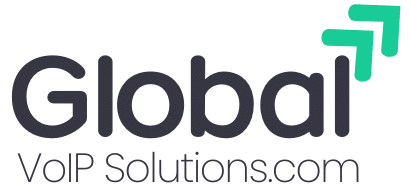
Introduction
In today’s digital landscape, VoIP security is more important than ever. As businesses and individuals increasingly rely on VoIP (Voice over Internet Protocol) for communication, cybercriminals are finding new ways to exploit vulnerabilities. From call fraud to data breaches, unprotected VoIP systems are prime targets for hackers.
This guide will help you understand the biggest VoIP security threats in 2024 and how to protect your calls from cyberattacks. By implementing best practices, you can safeguard your communication channels and prevent unauthorized access.
Understanding VoIP Security Threats
Why Hackers Target VoIP Systems
VoIP systems are attractive to hackers because they transmit voice data over the internet, making them vulnerable to interception and exploitation. The key reasons hackers attack VoIP systems include:
- Data theft: Sensitive business information can be stolen from VoIP calls.
- Eavesdropping: Hackers can listen in on conversations, leading to privacy breaches.
- Call fraud: Unauthorized calls made from a compromised VoIP system can lead to significant financial losses.
- Denial-of-Service (DoS) attacks: Hackers flood VoIP networks with traffic, making communication impossible.
Common VoIP Security Risks
1. Phishing & Social Engineering
Cybercriminals use deceptive tactics to trick users into revealing sensitive credentials, such as login information or VoIP account details.
2. VoIP Call Interception
Hackers can exploit unsecured VoIP networks to intercept calls and steal confidential conversations.
3. Denial-of-Service (DoS) Attacks
A DoS attack overwhelms a VoIP system with excessive traffic, leading to dropped calls and downtime.
4. Toll Fraud & Call Hijacking
Attackers can manipulate VoIP systems to make unauthorized international calls, resulting in huge financial losses.
5. Malware & Ransomware
VoIP systems can be infected with malware, leading to data theft, call disruptions, and ransom demands.
Best Practices to Secure Your VoIP Calls
1. Use Strong Authentication & Encryption
- Implement multi-factor authentication (MFA) to prevent unauthorized access.
- Encrypt VoIP calls with TLS (Transport Layer Security) and SRTP (Secure Real-time Transport Protocol) to prevent eavesdropping.
2. Keep Your VoIP Software and Hardware Updated
- Regularly update firmware and VoIP software to patch vulnerabilities.
- Outdated systems are more prone to cyberattacks, so ensure automatic updates are enabled.
3. Configure Firewalls & Session Border Controllers (SBCs)
- Use firewalls to monitor and block malicious traffic.
- Deploy Session Border Controllers (SBCs) to filter out unauthorized VoIP traffic and prevent threats.
4. Monitor and Detect Unusual Activity
- Track suspicious call patterns and prevent unauthorized access.
- Set up real-time alerts and analytics to identify security breaches instantly.
5. Secure Your Network Against VoIP Attacks
- Use Virtual Private Networks (VPNs) to encrypt VoIP traffic and protect calls.
- Implement VLANs (Virtual Local Area Networks) to separate VoIP traffic from regular network traffic for added security.
Emerging VoIP Security Trends 2025
1. AI-Powered Threat Detection
- Artificial Intelligence (AI) is improving VoIP security by detecting suspicious behavior and real-time anomalies.
2. Rise of Zero Trust Architecture (ZTA)
- Zero Trust security models ensure that no device or user is automatically trusted, requiring continuous authentication.
3. 5G and Cloud VoIP Security
- The rise of 5G networks enhances VoIP call quality but introduces new security challenges.
- Businesses using cloud-based VoIP services must ensure robust security configurations.
Choosing a Secure VoIP Provider
What to Look for in a VoIP Provider
- End-to-end encryption for VoIP calls.
- Advanced authentication methods (MFA, role-based access control).
- Regular security updates to protect against new threats.
Questions to Ask Your VoIP Provider
- What encryption standards do you use for VoIP security?
- How do you protect against DoS attacks and unauthorized access?
- Do you provide real-time monitoring and security alerts?
Why Tragofone Offers Robust VoIP Security Solutions
Tragofone stands out as a secure VoIP provider offering:
- Advanced encryption to protect calls from eavesdropping.
- Multi-layered authentication to prevent unauthorized access.
- Real-time security monitoring to detect and block threats instantly.
Conclusion
VoIP security is non-negotiable in 2024. As cyber threats evolve, protecting your VoIP communication should be a top priority. By implementing strong encryption, multi-factor authentication, firewall protections, and AI-driven threat detection, you can safeguard your calls from hackers.
Don’t wait for a security breach—take action now! Explore secure VoIP solutions and ensure your business communication remains safe from cyber threats.


